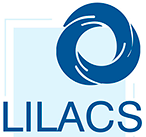Clinical intervention from motivational psychology in a highly competitive young gymnast
DOI:
https://doi.org/10.19136/hs.a18n3.3184Abstract
Objective: To demonstrate if there are improvements in the psychological variables of psychological well-being, self-efficacy and self-esteem, in a young gymnast, applying a psychological intervention based on the motivational coaching model the “Cantón’s Giraffe”. It is expected that the improvements will be reflected in quantitative data of questionnaires that include these variables, as well as qualitatively by the evaluation of the gymnast on the intervention performed and its effects. Method: A unique case design was used, with a 12-year-old girl who practices rhythmic gymnastics. The demand came from his coach, who perceived risks to his well-being and mental health. A methodology of methodological triangulation was used, combining quantitative aspects (pre and post measurement of psychological well-being, self-efficacy and self-esteem) and qualitative analysis of the sessions. An intervention protocol was used, designed for the model, with the identification, intervention and follow-up phases. A total of 11 sessions were made.
Results: The quantitative results show an increase in the scores in the psychological well-being, self-esteem and self-efficacy questionnaires, supported by the favorable qualitative analysis of the patient’s responses.
Conclusion: The intervention carried out has been shown to be effective in improving the psychological variables measured, in the athlete’s perception of her sport performance, and in the perceptions of her parents and her coach. Interventions of this type are considered necessary to prevent risks to mental health, especially in sports as demanding as rhythmic gymnastics.
Key words: Psychology; Motivation; Sports; Coaching.
Downloads
Downloads
Published
Issue
Section
License
Copyright (c) 2019 HORIZONTE SANITARIO

This work is licensed under a Creative Commons Attribution-NonCommercial-ShareAlike 4.0 International License.





























